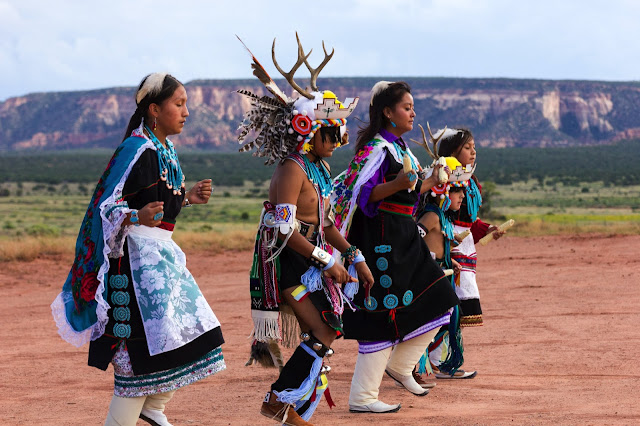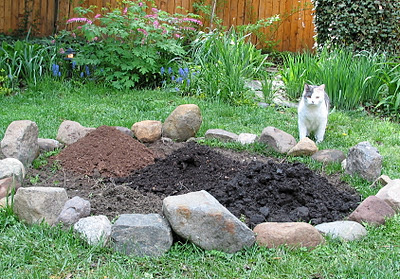Sisseton Wahpeton passes landmark statute
Published in Indian Country Today in 2011. This article was part of a project funded by the George Polk Center for Investigative Reporting. For more on topics like this, see my book, American Apartheid: The Native American Struggle....
One new state bill and one new tribal statute are putting sexual predators on notice in South Dakota.
Stateside:
State representative Steve Hickey (R.-District 9, Minnehaha County) has submitted a bill to the state legislature that would rescind a law that made it harder to sue for childhood sexual abuse in that state. Called HB1104, the statute prohibits such claims by anyone over 40.
“All we victims want is justice,” said Izzy Zephier, an elder of the Yankton Sioux Tribe, who brought a childhood-sexual-abuse suit in state court against St. Paul’s Indian Mission, in Marty, South Dakota; the Diocese of Sioux Falls; and the orders that supplied the school with nuns, priests and other staff. “When you pass a law to protect the predator, you make it worse for the victim. We want our day in court.”
The legislature passed HB1104 in 2010 after Zephier and about 100 other Native Americans—virtually all over 40—filed lawsuits charging they were sexually abused in schools the Catholic Church ran prior to the 1970s, when it turned over most of the facilities to the tribes. Since then, a state-court judge has been dismissing the lawsuits. As a result, said Robert Brancato, director of the South Dakota chapter of Survivors Network of Those Abused by Priests (SNAP), it appears the statute targeted the Native cases.
“By passing HB1104, the legislature said it’s okay to abuse Native American children in South Dakota,” charged Zephier.
According to Brancato, HB1104 may have immediately affected existing Native American lawsuits, but the fix Hickey’s bill proposes is universal—allowing such suits to proceed, but also safeguarding all South Dakota’s children going forward: “The new bill will protect children in Catholic school, public school—wherever predators seek them out. South Dakota must ensure victims can pursue perpetrators.”
The new bill is in committee; the full legislature will consider it in the session beginning January 2012. “I expect several co-sponsors and bi-partisan support,” said Hickey, who is a minister at Church at the Gate, in Sioux Falls.
Hickey condemned HB1104, written as a so-called “constituent bill” by Steve Smith, a Catholic Church lawyer defending about a dozen childhood-sexual-abuse cases Native Americans have brought against his client Congregation of Priests of the Sacred Heart, which runs St. Joseph’s Indian School, in Chamberlain, South Dakota. Smith also provided the 2010 bill’s only testimony. “It’s scandalous and shameful that someone litigating abuse cases could put forth a bill sheltering his client,” said Hickey. “This was not made clear to our citizen legislature, which works fast, handling some 500 bills in 38 days. Nor was it made clear HB1104 would affect cases already in the system.”
Smith said he was working on his own, not on behalf of St. Joseph’s. He noted the school has already been “very generous” with those it felt were actually abused. Litigating more cases would be ruinous, he added. “We have no insurance to cover this,” he said of St. Joseph’s, “so that would be very expensive.”
The legislature will hear a full range of testimony by experts when Hickey’s bill comes up, he said. “Since submitting the statute, I’ve heard legislators speculate about ‘repressed memory’ or say the limit of age 40 provides enough time to bring a suit,” said Hickey. “I respond that it’s not up to the legislature to weed out cases ahead of time. Let’s leave that to the courts.”
“We are praying for everyone involved in this process and will do so until there is justice,” said Zephier, who will testify before the South Dakota legislature when Hickey’s bill comes up. “God hears us. And we must remember that God is always watching us.”
“We are praying for everyone involved in this process and will do so until there is justice,” said Zephier, who will testify before the South Dakota legislature when Hickey’s bill comes up. “God hears us. And we must remember that God is always watching us.”
A new tribal law:
Meanwhile, at the Sisseton-Wahpeton Oyate, in northeastern South Dakota, a childhood-sexual-abuse bill the tribal council approved September 27 became part of the legal code on November 1, said tribal member Mary Jane Wanna, who worked to get the statute passed, along with her brother, the late Howard Wanna, after whom it is named, and other family members. The Wannas and additional tribal members are among the 100-plus Native Americans whose abuse cases were affected by HB1104. The new tribal law offers another legal option.
“Every tribe should have this kind of law,” said Mary Jane Wanna. “Let’s take into our own hands the power to remedy these crimes. What’s done to any one of our children affects all of us.”
 “We’re so relieved,” said Mary Jane
Wanna, 65, of the new statute, which will allow tribal members to file claims in tribal court. The council
approved the measure on September 27, after an energetic four-month campaign by tribal members including (left to right in photo) Patricia, Howard, Mary Jane and Sandy Wanna. The Wanna siblings and others allege they were abused as youngsters while
attending a local Catholic Church-run residential facility.
“We’re so relieved,” said Mary Jane
Wanna, 65, of the new statute, which will allow tribal members to file claims in tribal court. The council
approved the measure on September 27, after an energetic four-month campaign by tribal members including (left to right in photo) Patricia, Howard, Mary Jane and Sandy Wanna. The Wanna siblings and others allege they were abused as youngsters while
attending a local Catholic Church-run residential facility.
The Sisseton Wahpeton law is the
first of its type in the country, according to Vito De La Cruz, Yaqui, an
attorney with Tamaki Law, a Washington State firm that was instrumental in the
recent $166-million settlement reached with
the Jesuits on behalf of hundreds of former students who had charged abuse at
the religious order’s schools in the Northwest and Alaska. “All tribes
have criminal child-sex-abuse statutes, but this is the first civil one and allows plaintiffs whose cases have been
dismissed in other jurisdictions to file in tribal court,” said De La Cruz, who
added that both state and federal courts honor tribal court judgments.
“Sisseton Wahpeton is giving its tribal members their day in
court—in their own court,” said Ken Bear Chief, Gros Ventre/Nez Perce/Nooksak,
an investigator and paralegal with Tamaki Law. “It is within tribes’ power to
hear personal-injury claims against organizations that operated within their
boundaries.”
Attorney Smith dismissed the tribal-court option, saying any claims that were successful would be appealed to the federal courts and thrown out.
Attorney Smith dismissed the tribal-court option, saying any claims that were successful would be appealed to the federal courts and thrown out.
Wanna and others—including her
brother Howard, who has since died of cancer and regarded his efforts as a way to
protect further generations—advocated for the change since early this past
summer. They buttonholed Sisseton Wahpeton officials and talked up the statute
at district gatherings, elders’ groups, tribal council meetings, a public forum
and even the grocery store, said Mary Jane. “I told one councilor we’re
always throwing around the word oyate—meaning
‘my people, our people.’ And I said to him, ‘I’m your people,’” she recalls. “He told me not to worry. Now I
hope every other reservation in South Dakota follows suit with a law of their
own. It can and should be done.”
Mary Jane’s sister Patricia, 61, was elated, saying, “Finally, we’re someone!
We’re not ‘nothing’ anymore. I feel a weight off my
shoulders.”
The Church thought its problems were over, said Howard Wanna before he passed away: “But they’re
not. We passed this law, and the lawsuits will let the world know we were
molested and tortured. The abuse affected every family on this reservation. We
went through hell.”
Text c. Stephanie Woodard; photo courtesy the Wanna family.

